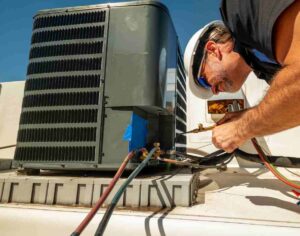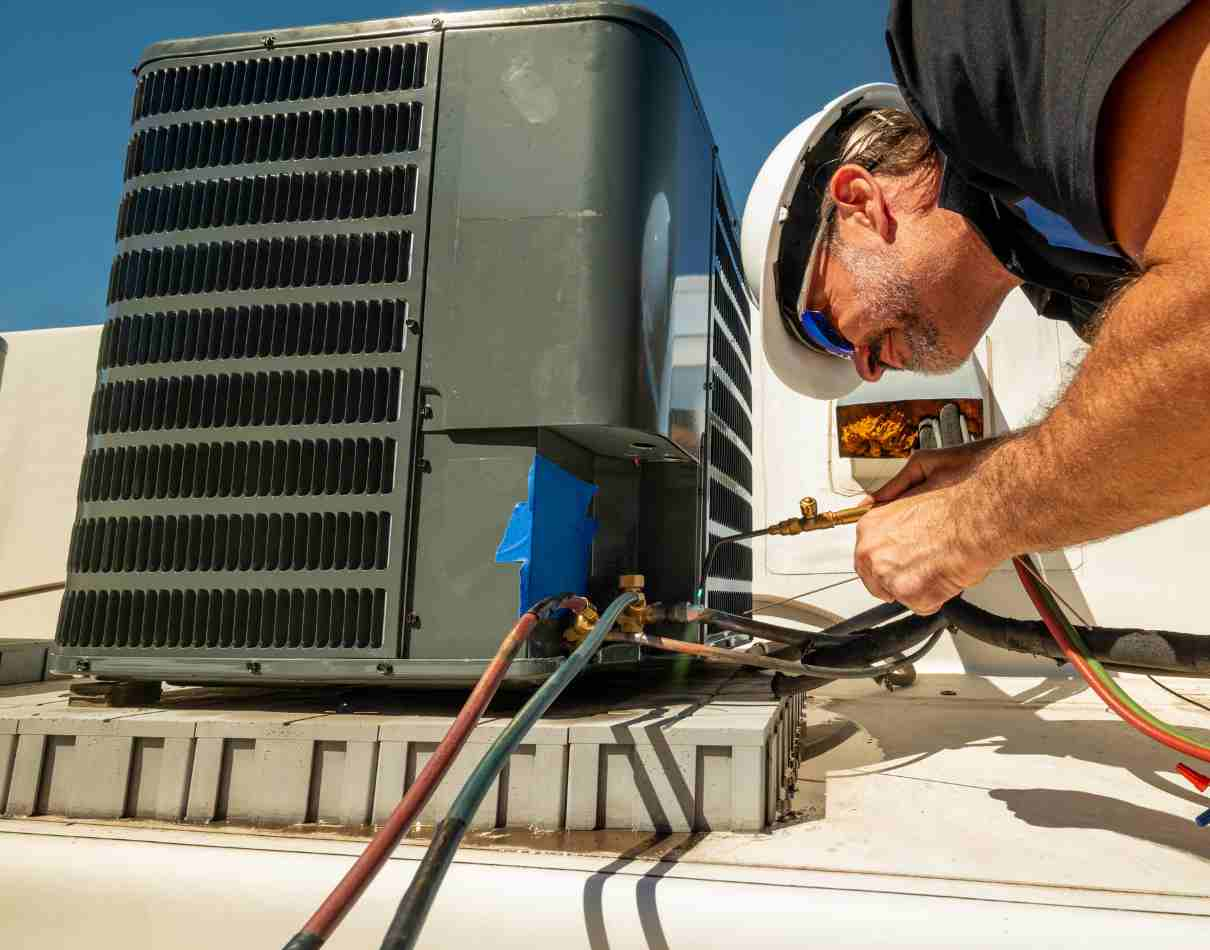When your HVAC system starts acting up, you’re faced with a big decision: repair or replace? It’s not always easy to tell which option makes more financial and practical sense. If you’ve been searching for guidance on HVAC replacement, you’ve come to the right place. Wayne Martin and Son Signature Air Conditioning is here to help you navigate this decision with confidence.
At Wayne Martin and Son Signature Air Conditioning, we’re not here to push unnecessary replacements. We understand that HVAC systems are a significant investment, and we always prioritize repairs first—whenever it makes financial sense. Our goal is to extend the life of your current system while being mindful of your budget. However, when replacement is the better option, we’ll explain why with complete transparency.

Is It Time to Fix or Ditch Your HVAC? Here’s How to Decide
HVAC systems don’t last forever. In fact, the average lifespan of a well-maintained HVAC unit is 10–15 years. If yours is creeping toward that upper limit—or if repairs are becoming a regular expense—it might be time for HVAC replacement.
Quick Rule of Thumb: If a repair costs more than 50% of the unit’s value, replacement is usually the smarter move.
Example:
- Original cost of your unit: $6,000
- Repair cost: $3,200
- Since the repair exceeds 50% of the unit’s value, HVAC replacement may be the better long-term investment.
Regardless of whether your system needs a repair or a full HVAC replacement, we will make sure you are fully informed every step of the way. Our team provides complete transparency about costs, timelines, and potential outcomes so you can make the best decision for your home and budget.
5 Signs It’s Time to Consider HVAC Replacement
Still unsure? Watch for these signs:
Weak Airflow or Longer Run Times:
- If your HVAC system struggles to maintain consistent temperatures, runs longer than usual, or blows weak air from the vents, it could indicate a failing compressor or other performance issues.
Frequent Repairs:
- If you’ve called for repairs more than twice in the last year, your HVAC system might be nearing the end of its lifespan.
Inconsistent Temperatures:
- Hot spots, cold spots, and inconsistent airflow are classic signs of a failing system.
Strange Noises or Odors:
- Grinding, squealing, or musty smells can indicate mechanical or mold issues.
Outdated Technology:
- Modern HVAC units offer smart controls, better filtration, and improved performance.
The 50% Rule: Your Secret Weapon for HVAC Decisions
As mentioned earlier, the 50% rule can simplify your decision:
- Repair if: The fix is less than 50% of the system’s value and the unit is under 10 years old.
- Replace if: The repair exceeds 50% of the value or the unit is over 10 years old.
Energy Efficiency: The Hidden Cost of Hanging On to an Old Unit
HVAC systems can lose efficiency over time, especially without regular maintenance. Dust buildup, worn components, and outdated technology can cause your system to work harder than necessary. This increased workload leads to higher energy consumption, more frequent breakdowns, and higher utility bills. Regular maintenance helps your HVAC system operate at peak efficiency and extends its lifespan.
HVAC Replacement in SW Florida: What You Need to Know
Florida’s heat and humidity place extra strain on HVAC systems. Our subtropical climate requires systems to work harder and longer than in many other regions, making timely HVAC replacement even more critical.
Quick Florida Fact:
The Sunshine State ranks among the top 5 states for HVAC system usage. An overworked unit won’t last as long here as it might up north.
FAQ: HVAC Replacement Questions Answered
How do I know when it’s time for HVAC replacement?
- When your unit is 10+ years old, requires frequent repairs, or struggles to keep your home comfortable, it’s time to consider replacement.
What factors affect the cost of HVAC replacement?
- Unit size, energy efficiency ratings, installation complexity, and system type (split, ductless, etc.).
How much can I save on energy bills with a new HVAC system?
- Upgrading to a high-efficiency HVAC system can reduce your energy consumption by 20–40%, according to the U.S. Department of Energy. The exact savings depend on factors like your current system’s age, the efficiency rating of your new unit, and the overall condition of your home’s ductwork.
What should I look for when choosing a new HVAC system?
- Focus on SEER ratings (Seasonal Energy Efficiency Ratio), system size, and advanced features like smart thermostats.
How long will an HVAC replacement take?
- Most residential installations take 1–2 days, depending on the complexity.
Choosing between HVAC repair and HVAC replacement doesn’t have to be overwhelming. At Wayne Martin and Son Signature Air Conditioning, we’ll walk you through your options and help you make the best decision for your home and your budget.
Call us today to schedule your consultation!

